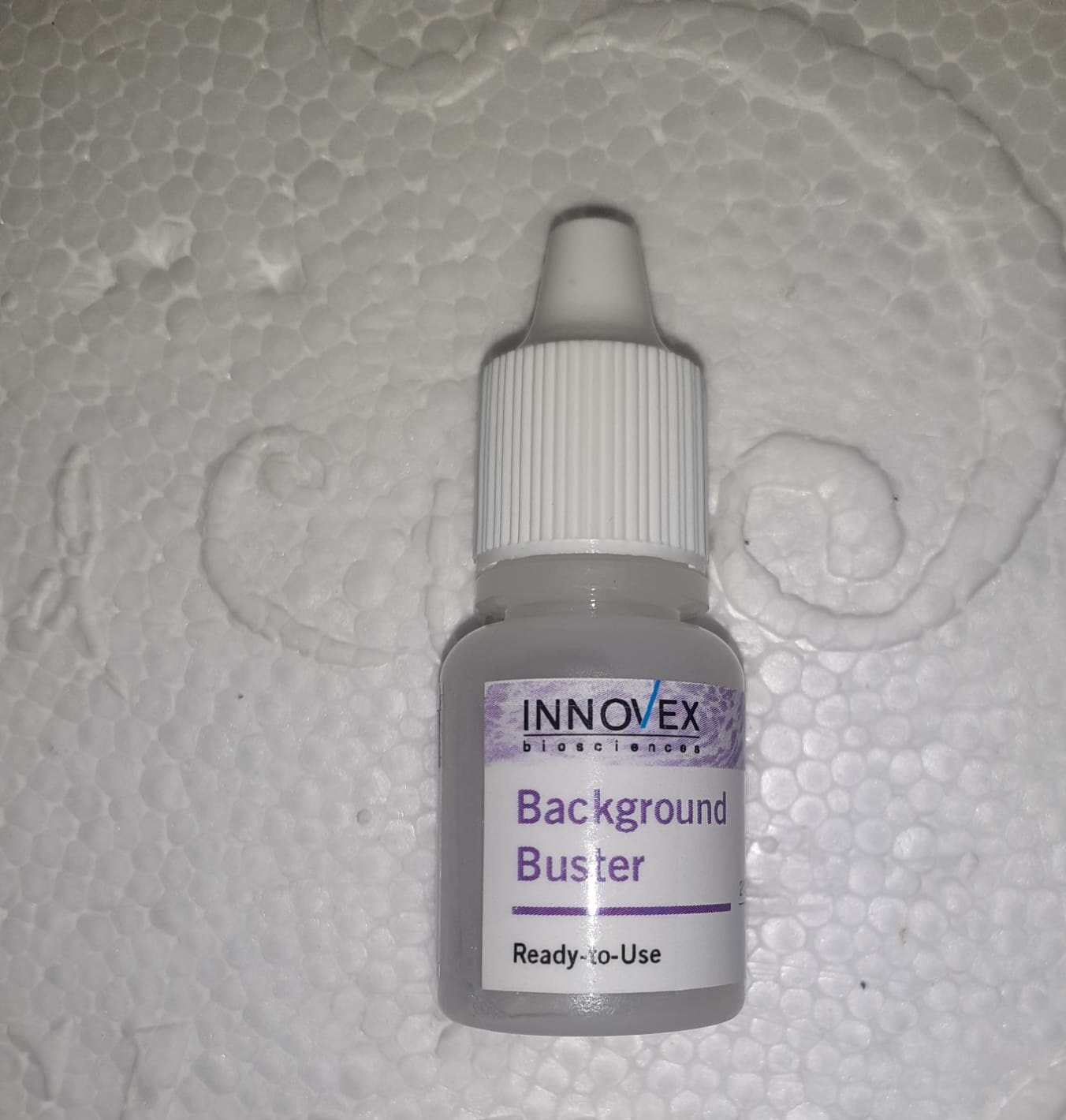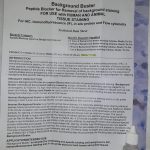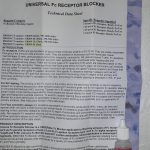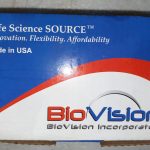Extracellular vesicles (EV) are membrane encapsulated nanoparticles which will function in intercellular communication, and their presence in biofluids shall be indicative for (patho)physiological conditions. Analysis aiming to resolve functionalities of EV or to search out EV-associated biomarkers for sickness in liquid biopsies are hampered by limitations of current protocols to isolate EV from biofluids or cell custom medium.
EV isolation is subtle by the >105-fold numerical further of various types of particles, along with lipoproteins and protein complexes. Together with persisting contaminants, presently on the market EV isolation methods would possibly endure from inefficient EV restoration, bias for EV subtypes, interference with the integrity of EV membranes, and lack of EV efficiency.
On this look at, we established a novel three-step non-selective method to isolate EV from blood or cell custom media with every extreme yield and purity, resulting in 71% restoration and near to complete elimination of unrelated (lipo)proteins. This EV isolation course of is neutral of ill-defined enterprise kits, and apart from an ultracentrifuge, would not require specialised pricey gear.
Liquid chromatographic profiling of monosaccharide concentrations in difficult cell-culture media and fermentation broths
A steady part extraction, liquid chromatography and fluorescence (SPE-RPLC-FL) based totally protocol for the willpower of free monosaccharides in extraordinarily difficult raw supplies powders and formulated fermentation feedstocks and broths has been developed.
- Monosaccharides inside sample extracts have been derivatised pre-column with anthranilic acid and the derivatives separated using reversed-phase LC with fluorescence detection. Using a 2.1 mm × 50 mm 1.Eight µm Zorbax Eclipse XDB-C18 column, a motion cost of 0.4 mL min-1 and an acetonitrile gradient in a sodium acetate buffer (pH 4.3; 50 mmol L-1) the baseline choice of glucosamine, mannosamine, galactosamine,
- galactose, mannose, glucose, ribose, xylose, fucose and sialic acid inside 20 minutes was achieved. Pre-column derivatisation involved combining a 30 mg mL-1 decision of anthranilic acid in a 1 : 1 ratio with an aqueous commonplace earlier to injection.
- Customary analytical effectivity requirements have been used for evaluation features, with the technique found to exhibit LOD’s as little as 10 fmol, and be linear and precise (%RSD < 2.2% (n = 7). The tactic was utilized to the analysis of quite a lot of extraordinarily difficult biopharmaceutical manufacturing samples, along with yeastolate powders, chemically outlined media and in-process fermentation broth samples. Sample preparation involved passing an aqueous sample by way of a C18 steady part extraction cartridge to lure hydrophobic peptides and dietary nutritional vitamins, with restoration of all check out sugars exceeding 90%.
- Lastly, commonplace statistical analysis was carried out on samples taken from utterly completely different tons with a function to estimate lot-to-lot variability.
Magnetic nanoparticle loaded human adipose derived mesenchymal cells spheroids in levitated custom
- Magnetic nanoparticles (MNP) are intensely scrutinized for biomedical functions attributable to their great biocompatibility and adjustable magnetic space (MF) responsiveness. Three-dimensional spheroid custom of ADSC improves stem cell proliferation and differentiation, rising their potential for scientific functions.
- On this look at we aimed to detect if MF levitated custom of ADSC loaded with proprietary MNP hold the properties of ADSC and improve their performances.
- Levitated ADSC-MNP formed aggregates with elevated amount and lowered amount as compared with nonlevitated ones. ADSC-MNP from levitated spheroid displayed higher viability, proliferation and mobility as compared with nonlevitated and 2D custom. Levitated and nonlevitated ADSC-MNP spheroids underwent three lineage differentiation, demonstrating preserved ADSC stemness.
- Quantitative osteogenesis confirmed associated values in MNP-loaded levitated and nonlevitated spheroids. Important will enhance in adipogenic conversion was seen for all 3D formulation. Chondrogenic conversion in levitated and nonlevitated spheroids produced comparable ratio glucosaminoglycan (GAG)/DNA. Elevated chondrogenesis could be seen for ADSC-MNP in every levitated and nonlevitated state of affairs. Taken collectively, ADSC-MNP levitated spheroids retain stemness and present superior cell viability and migratory capabilities.
- Furthermore, the technique persistently will enhance spheroid maneuverability, in all probability facilitating huge scale manufacturing and automation. Levitated spheroid custom of ADSC-MNP shall be further examined for quite a few utility in regenerative medication and organ modeling.

heraeus-targets
Show screen-Printed Glucose Sensors Modified with Cellulose Nanocrystals (CNCs) for CellCulture Monitoring
Glucose sensors are in all probability useful devices for monitoring the glucose focus in cell custom medium. Proper right here, we present a model new, low-cost, and reproducible sensor based totally on a cellulose-based supplies, 2,2,6,6-tetramethylpiperidine-1-oxyl (TEMPO) oxidized-cellulose nanocrystals (CNCs).
This novel biocompatible and inert nanomaterial is employed as a polymeric matrix to immobilize and stabilize glucose oxidase inside the fabrication of a reproducible, operationally safe, extraordinarily selective, cost-effective, screen-printed glucose sensor. The sensors have a linear differ of 0.1-2 mM (R2 = 0.999) and a sensitivity of 5.7 ± 0.Three µA cm-2∙mM-1.
The prohibit of detection is 0.004 mM, and the prohibit of quantification is 0.015 mM. The sensor maintains 92.3 % of the preliminary current response after 30 consecutive measurements in a 1 mM commonplace glucose decision, and has a shelf lifetime of 1 month whereas sustaining extreme selectivity. We present the smart utility of the sensor by monitoring the glucose consumption of a fibroblast cell custom over the course of a lot of days.
Enchancment and characterization of megalocytivirus persistently-infected cellcultures for prime yield of virus
- Megalocytivirus an an infection is a severe danger in rock bream aquaculture in Korea. To produce a extraordinarily concentrated megalocytivirus, main cells, established cell line and persistently contaminated cell line have been used on this look at.
- Megalocytivirus was inoculated in main fin cell cultures of purple sea bream (Pagrus fundamental), rock bream (Oplegnathus fasciatus), olive flounder (Paralichthys olivaceus) and black sea bream (Acanthopagrus schlegelii) and produced at associated concentrations of 1099 – 9.88 viral particles/mL in all cultures whereas produced 107.31 viral particles/mL in grunt fin (GF) cell line. Since solely purple sea bream fin custom was amenable to subculturing for higher than 100 events, it was established into Pagrus fundamental fin (PMF) cell line.
- A persistently contaminated PMF cell line (PI-PMF) was obtained by regular subculturing every 7 days as a batch custom system (PI-PMF-B) after infecting with megalocytivirus. Virus in supernatant of PI-PMF-B was maintained at extreme concentrations all via over 50 consecutive subcultures in a comparatively slim differ from 1033 to 108.94 viral particles/mL with extreme diploma of CPE. For a further atmosphere pleasant and helpful manufacturing, a semi-batch custom system (PI-PMF-S) was developed throughout which custom media have been exchanged at intervals of three days with out subculturing for higher than 50 media exchanges.
- No matter low virus productiveness in a single cell (explicit virus productiveness, SVP), complete cell amount was elevated in PI-PMF-S, allowing us to successfully obtain a rather a lot higher focus of virus (1056 to 109.75 viral particles/mL) than in PMF-B. That’s the major look at to report detailed new methods for regular and atmosphere pleasant manufacturing of extreme concentrations of megalocytivivrus with characterization of viral propagation in persistently contaminated cells.
Template Not founded. ” header=”2″ prohibit=”65″ start=”1″ showCatalogNumber=”true” showSize=”true” showSupplier=”true” showPrice=”true” showDescription=”true” showAdditionalInformation=”true” showImage=”true” showSchemaMarkup=”true” imageWidth=”” imageHeight=””]




